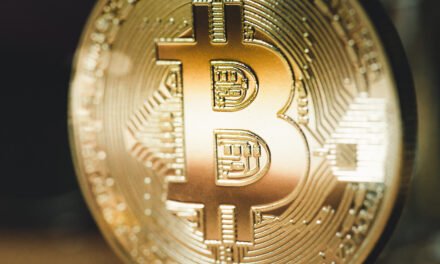The rise of cryptocurrency has been nothing short of remarkable, with its promise of decentralization and financial autonomy capturing the attention of millions. If you’re new to this dynamic world let me help guide your understanding by unlocking some essential information about digital currency. With my expertise we can pave a path towards informed participation in no time!

Understanding Cryptocurrency – What You Need to Know
Cryptocurrency is a digital currency that utilizes cryptography for security purposes. This innovation enables users to conduct transactions without relying on traditional banking systems or central authorities. Unlike fiat currencies like the dollar or euro which are printed and exist physically; cryptocurrencies only exist in virtual form. Bitcoin remains one of the most popular examples but there are numerous other types with unique features serving different functions.
## The Power of Blockchain Technology in Digital Currency
The foundation of cryptocurrency lies in blockchain technology – an open ledger that records all transactions across a network of computers. Each block within this chain contains multiple transactions and once one fills up it links with the previous one forming an unalterable record known as “chain”. This decentralized approach ensures transparency and security since no single entity controls or owns any part of the system. The absence of central control also reduces fraudulent activities while increasing trust among users who can rely on its accuracy without fearing manipulation by third parties. Blockchain technology is therefore crucial for maintaining stability and integrity within digital currencies like Bitcoin or Ethereum.

Exploring Cryptocurrencies Beyond Bitcoin
Bitcoin may be the most well known cryptocurrency but its important to remember that it is just one player in a vast ecosystem. Ethereum offers smart contracts – self executing agreements coded directly onto blockchain technology while Ripple (XRP) focuses on enabling fast international money transfers for banks and financial institutions. Litecoins lighter version of Bitcoin provides quicker transactions while stablecoins like USDT offer stability by being pegged to traditional currencies. Exploring different types of cryptocurrencies can be both enjoyable and informative! With thousands available there are endless possibilities waiting to be discovered.
How To Set Up Your First Crypto Wallet
Are you ready to take the plunge? Your first step involves setting up a crypto wallet – an essential tool that enables secure storage of your coins. This is crucial for any cryptocurrency investor looking to protect their assets from potential threats and maintain control over them at all times. Don’t delay! Start exploring this exciting world today by creating your own personalized digital wallet.
Selecting the appropriate wallet type is crucial when it comes to managing your cryptocurrency holdings. choosing between hardware (physical devices), software (apps on desktops or mobile phones) and paper (printed QR codes) presents several options with varying advantages and disadvantages. To make an informed decision, one must carefully consider each option before making a final choice based on their specific needs and preferences.
2. **Selecting a Wallet Type**: If you’re going for software, download it from an official source; if hardware is your preference make sure to buy from reputable vendors.
The Advantages of Hiring a Car Accident Attorney
Setting up an account is crucial for accessing various services online. To do so effectively, follow the prompts provided and create a strong password that will keep your information secure.nnThis process typically involves creating a unique username or email address along with selecting a complex password using uppercase letters, lowercase letters, numbers, and symbols to make it difficult for hackers to guess.
4. **Backup Your Wallet**: Don’t forget to create a backup phrase for your wallet! This is crucial in case you lose access due to device loss or theft. Make sure this information is kept safe and easily accessible at all times.
5. **Boost Your Security**: Enable two factor authentication for added layers of protection against potential threats.
Buying and Selling Crypto – Exchange and Marketplace Tips
Once you’ve set up your wallet its time to start investing in cryptocurrencies! Consider using an exchange like Coinbase or Binance where you can easily trade fiat for digital assets.
To begin trading cryptocurrencies through an exchange sign up for their services. The process is straightforward and requires creating a user account with your chosen platform. With this step completed you’ll be ready to start buying or selling digital assets in no time!
2. **Comply with Regulations**: To prevent fraudulent activities exchanges require users to verify their identities through ID verification processes mandated by regulation.
Trading requires capital, so make sure you have enough funds by linking your bank account or credit card to fund your trading account. This step is crucial for ensuring that you can execute trades without any hiccups.
4. **Finalize Your Purchase**: Once you’ve found what catches your eye, make it yours by placing an order!
To enhance security when purchasing coins from an exchange it is recommended that you transfer them into your private wallet. This will provide added protection against potential threats or risks associated with leaving funds on the platform itself.
Staying Safe in the Crypto Space: Tips for Beginners
In the crypto world, safety should always be a top priority.
Investing can be a daunting task for those who lack sufficient knowledge about the subject matter. To avoid making costly mistakes it is essential that one does their homework before diving in headfirst into any investment opportunity. Additionally, scams are rampant within this industry and so caution must always prevail when considering offers with unrealistic promises of high returns overnight or other such enticements which seem too good to be true – they usually are! Another important aspect worth mentioning is keeping all software up-to-date including wallet apps as well as antivirus programs; these measures help protect against potential threats from hackers seeking unauthorized access to sensitive information stored on devices used for online transactions. Finally using strong passwords along with two factor authentication (2FA) adds an extra layer of security by requiring users provide additional verification beyond just entering a password alone during login attempts – this helps prevent fraudulent activity while also ensuring greater peace of mind regarding personal data protection.
The intricate landscape may seem daunting at first glance but with knowledge and caution you can unlock doors previously closed off by misinformation or fear! So welcome aboard!







